Sustainable Dining Seen as a Key Ingredient for Sustainable Tourism at the Department of Tourism's Philippine Harvest
August 2018
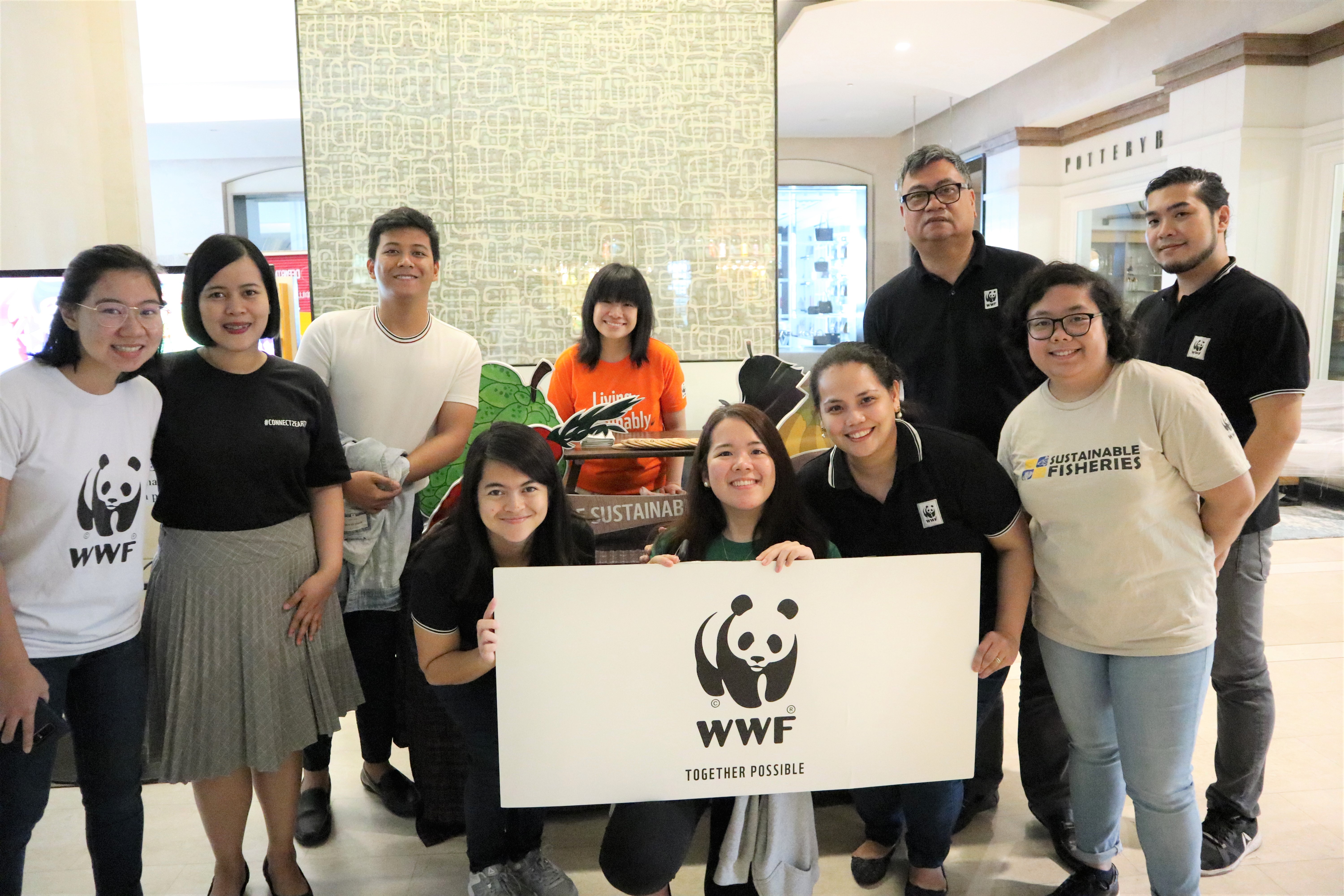
All smiles for Team Panda at the launch of Philippine Harvest: Sustainable Living, Food, and Travel last August 24, 2018 at Central Square, Bonifacio Global City. © Gabriel Villalon / WWF-Philippines
“Because of travel, people have become more aware of situations beyond their spheres of influence, beyond their lives. But also because of travel, places that used to be untouched and pristine are now getting more and more exposed.”
Chef Waya Wijangco of Gourmet Gypsy Art Cafe could have not said this any better. Tourism is one of the major industries that continuously contributes to the growth of the Philippine economy. According to the Department of Tourism (DOT) Philippines’ website, estimated visitor receipts for the month of June 2017 has yielded an aggregate of around PHP 27,136.52 Million, posting an impressive growth of 30.68% compared to June 2016. Foreign tourist arrivals from the Republic of Korea, China, the United States of America, Taiwan, and Japan continue to increase, with an average daily expenditure of PHP 6,229.27 throughout their stay. A significant chunk of this daily expenditure goes to food and dining. In the Philippines, one of the biggest parts of the tourism value chain for both domestic and international travelers alike is the food service sector, a majority of which includes restaurants.
With its greater mandate of improving Filipino lives and conserving the ecosystems that enable our local communities to flourish, World Wide Fund for Nature (WWF) Philippines saw an opportunity to focus on the food service sector through its pioneer project on sustainable consumption and production, The Sustainable Diner: A Key Ingredient for Sustainable Tourism.
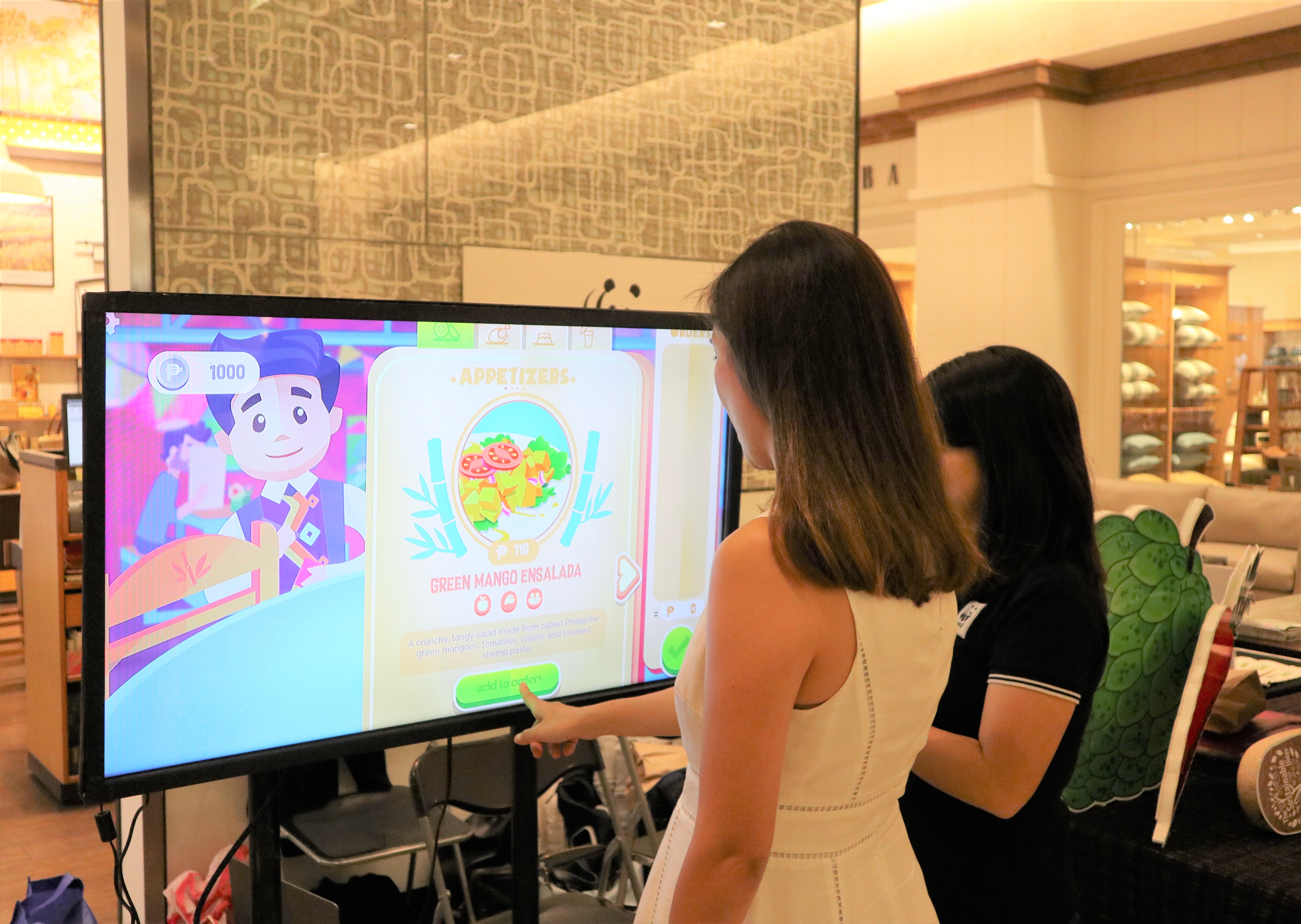
Stephanie Zubiri-Crespi, a member of WWF-Philippines' Next Gen Council, plays the Balay Kawayan game of the Sustainable Diner project. © Gabriel Villalon / WWF-Philippines
Last August 24 to 26, 2018, WWF-Philippines, through The Sustainable Diner project, was invited by the Department of Tourism (DOT) Philippines to participate in the agency’s second edition of Philippine Harvest, held at Central Square, Bonifacio Global City, and co-organized by the SSI Group, Inc. and the Tourism Promotions Board (TPB) Philippines. With the theme, “Sustainable Living, Food, and Travel”, more than 40 exhibitors took part to promote the richness of the country’s farm and food tourism, in line with the DOT’s mission of making travel more sustainable in every aspect, including food. WWF-Philippines was invited to showcase The Sustainable Diner project, particularly its Balay Kawayan interactive game, as well as to present mini-lectures and a panel discussion on sustainable tourism and sustainable dining.
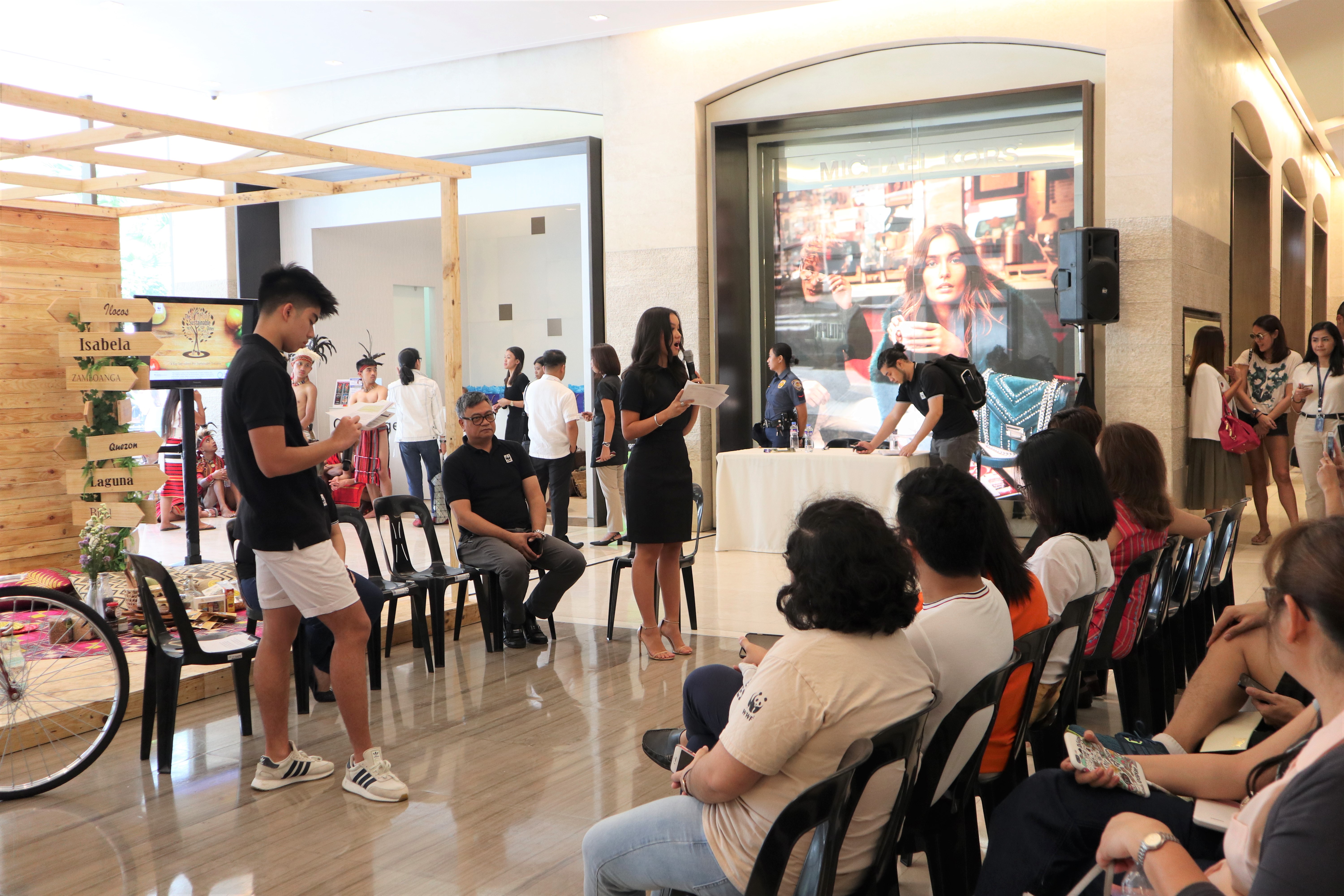
Nikki Huang and Luis Villanueva, members of the WWF-Philippines National Youth Council, moderate the panel discussion for sustainable tourism and sustainable dining. © Gabriel Villalon / WWF-Philippines
The panel discussion, moderated by Nikki Huang and Luis Villanueva of WWF’s National Youth Council, highlighted the effects of travel on the environment, as well as the effects of our dining choices when we travel, but also in our daily routines. Joel Palma, President and CEO of WWF-Philippines, opened the discussion by connecting travel and tourism with our environment. “Right now we are in a situation wherein we only have one planet but we are consuming 1.7 planets. And sustainability means we only consume one planet, so this is very much a challenge,” said Palma. “Travel, now, is very common so we have to make travel and tourism more sustainable”. Palma also pointed out the different elements that make up a successful sustainable tourism program and the importance of balancing them out. “Number one, visitor satisfaction. If the place is not good, people will not go there. Second is you allow the communities to benefit from the livelihood that tourism brings. And the third, and most important, is to make sure that there’s natural resource protection,” he quipped. “So it’s not one or the other, they should be equal in importance so that we can have sustainable tourism programs”.
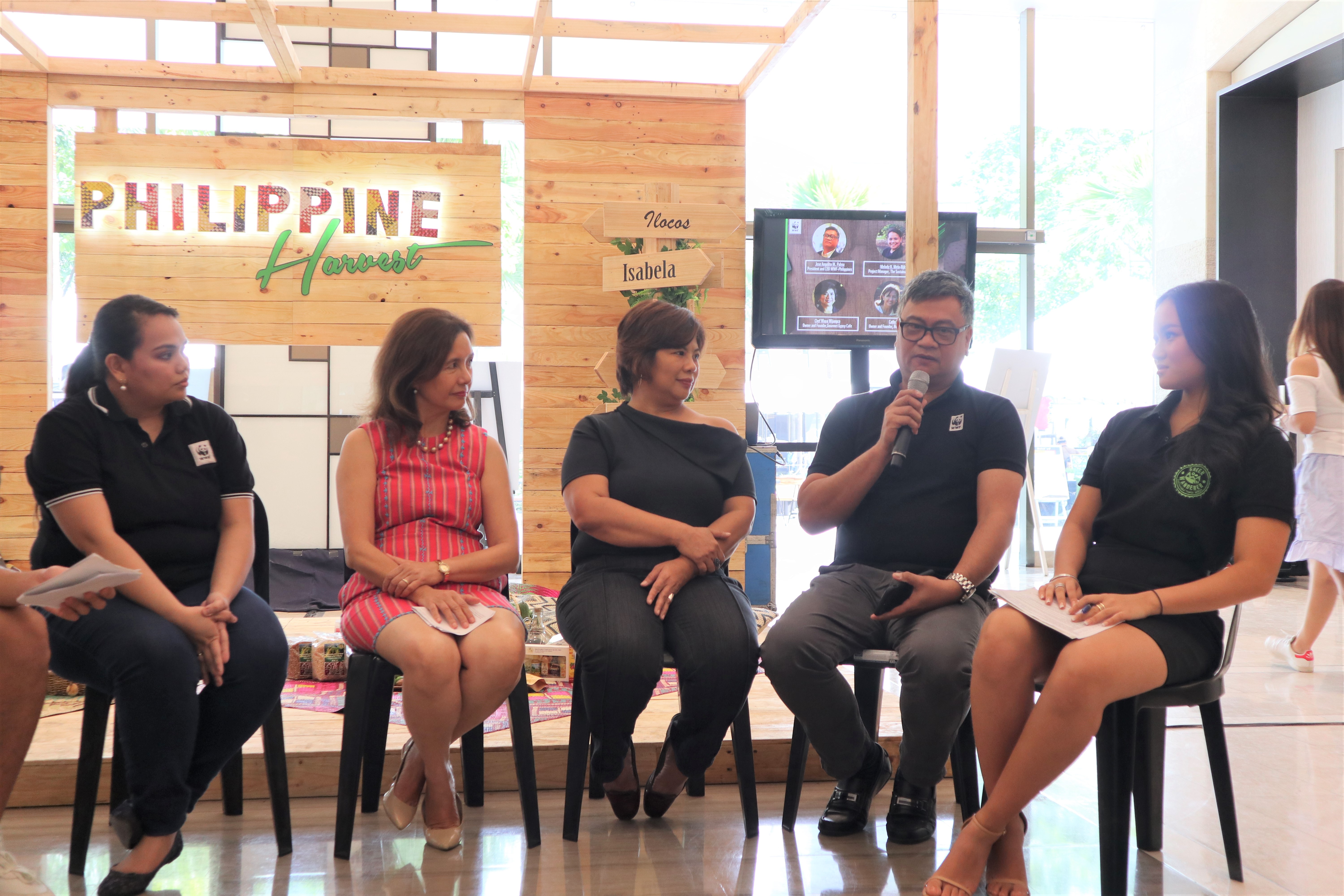
Joel Palma, CEO and President of WWF-Philippines, states facts about sustainability and how it relates to the travel and tourism industry. © Gabriel Villalon / WWF-Philippines
Melody Melo-Rijk, Project Manager of Sustainable Consumption and Production in the Philippines, discussed The Sustainable Diner project and how it contributes to sustainability in the tourism industry. “The Sustainable Diner project wants to help address different issues concerning sustainability in food. For one, in order for us to reduce our carbon footprint, we want to promote local - local ingredients that are within our midst, natural ingredients that are proudly Filipino. Philippine Harvest is actually an avenue for us to discover those ingredients and products,” noted Melo-Rijk. “Second, we want to prevent food waste. A lot of waste not only comes from the production side but also the consumption side, and we have to be mindful of how we consume and what we consume. Then we also want to promote the reduction of waste that is brought about by food production - the packaging, the use of single-use plastics. So those are the things that we want to address.”
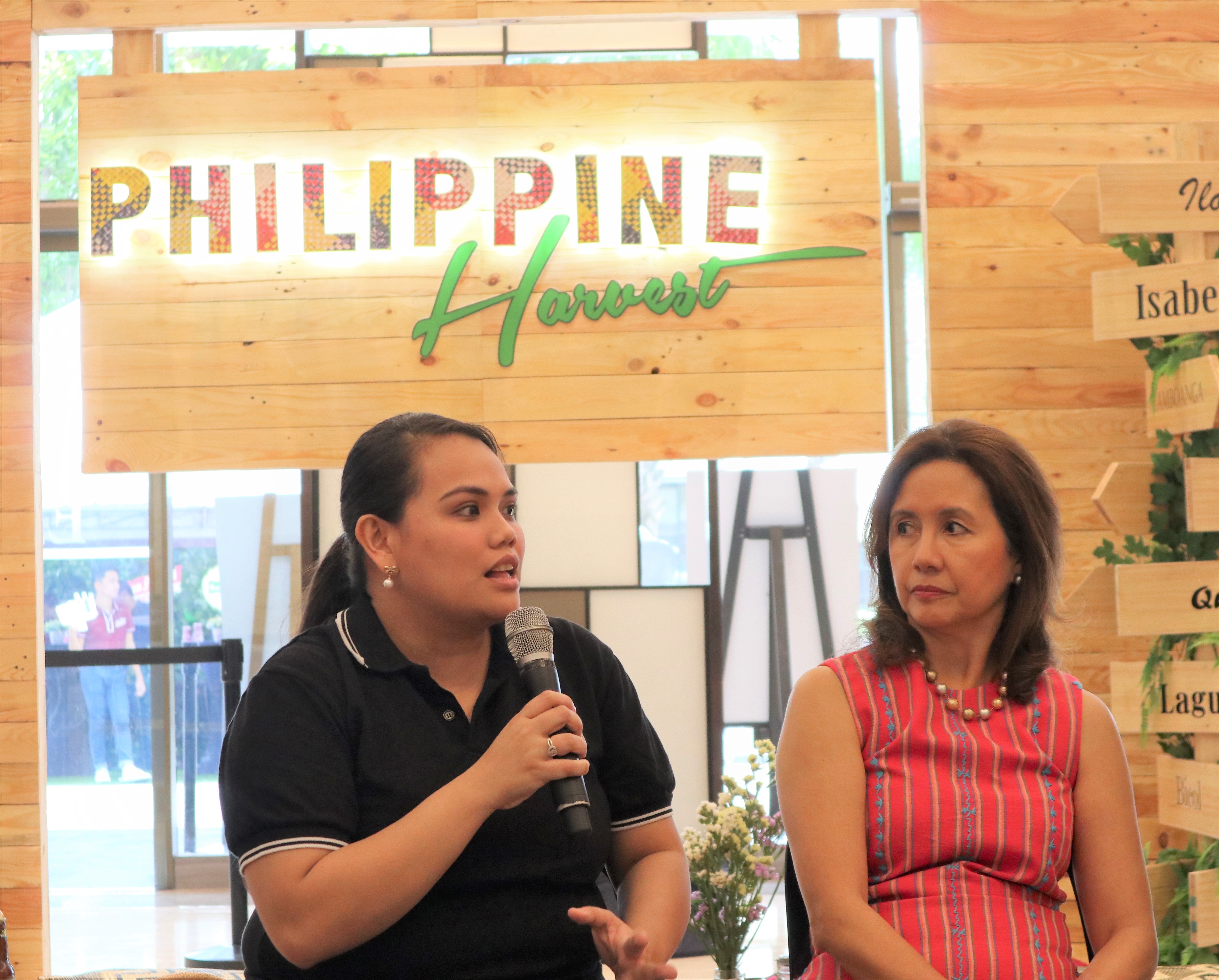
Melody Melo-Rijk, Project Manager of Sustainable Consumption and Production in the Philippines, discusses The Sustainable Diner and its relation to sustainability in both the food service and tourism industries. © Gabriel Villalon / WWF-Philippines
As a chef and restaurateur, Waya Wijangco echoed the sentiments, sharing the story on how her own restaurant started its sustainability journey. “At Gourmet Gypsy Art Cafe, we did not set out to be a sustainable restaurant. We started the business with the mission of helping people with special needs so what we needed was a business that was sustainable in the long run so that we can keep on helping them. And so a lot of it is pragmatic, like segregating our trash, selling what we can sell and having the money go to our tip box so our staff will be encouraged and incentivized to do the extra work,” said Wijangco. “When we noticed that we would throw away a lot of rice because people were changing their diets, not eating a lot of carbs, so we removed it from our mains altogether. So now when you come to our restaurant, you have to order which side you want so that you finish your food, because it was your choice.”
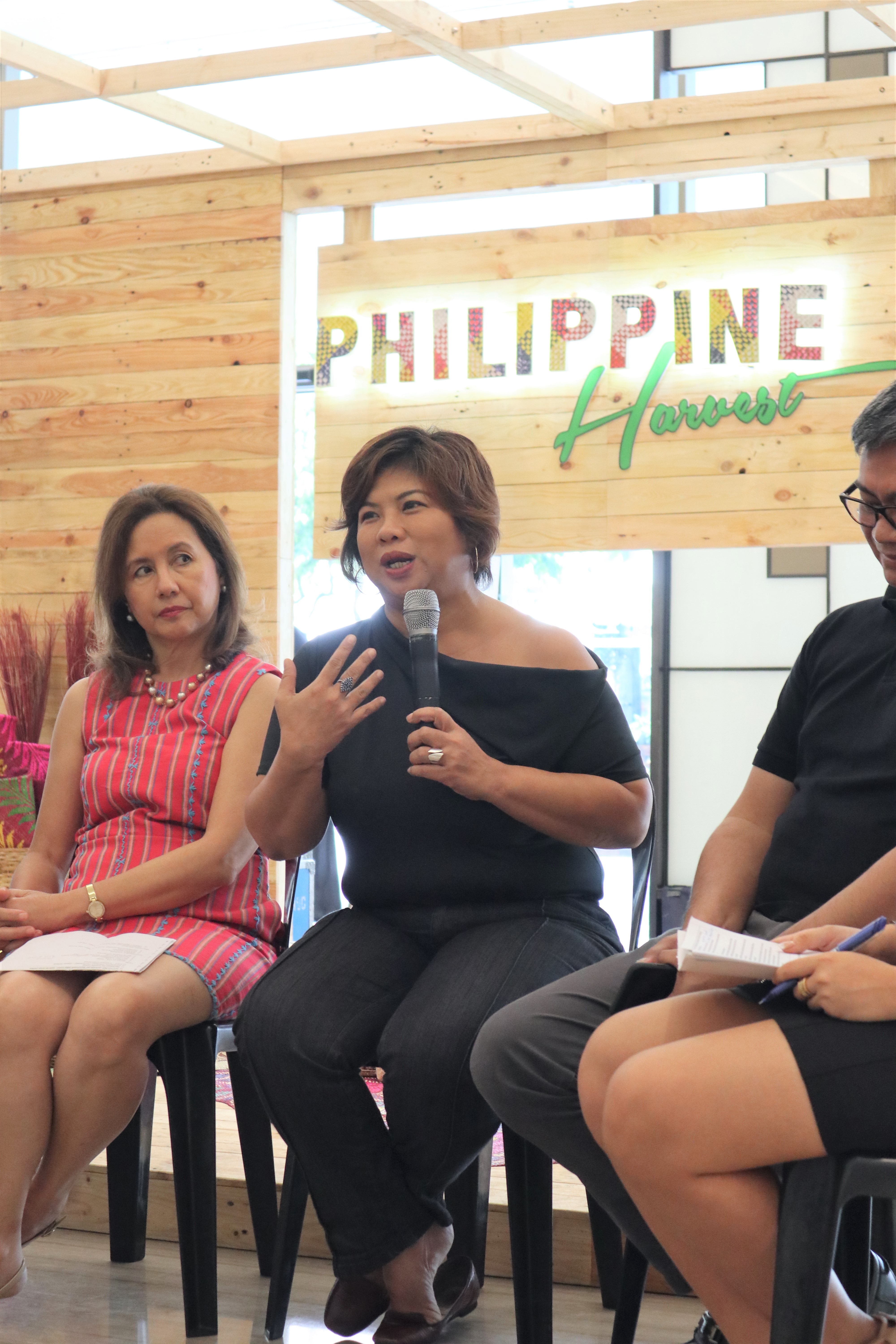
Waya Wijangco, Owner and Chef of Gourmet Gypsy Art Cafe, shares how sustainability practices enable her restaurant to continue its operations for the greater mission of providing opportunities for people with special needs. © Gabriel Villalon / WWF-Philippines
Answering a question on sustainability being expensive, Cathy Turvill, Owner and Founder of Nurture Wellness Village, explained in the context of sustainable living and educating about it early on. “What drives us really is that we want to be able to promote and protect the planet. In our farm, there is actually a classroom where we reach out to students and show them sustainability practices so that an early age, they learn how to plant and to see the importance of protecting the planet,” shared Turvill. “For me, sustainability is a way of being economical, it’s not expensive. It’s just being practical. Sustainability is really just using what we have and not throwing away anything. It is all about respecting the environment, respecting yourself, and respecting your wallet, how do you maximize what you have and how do you avoid throwing away?”
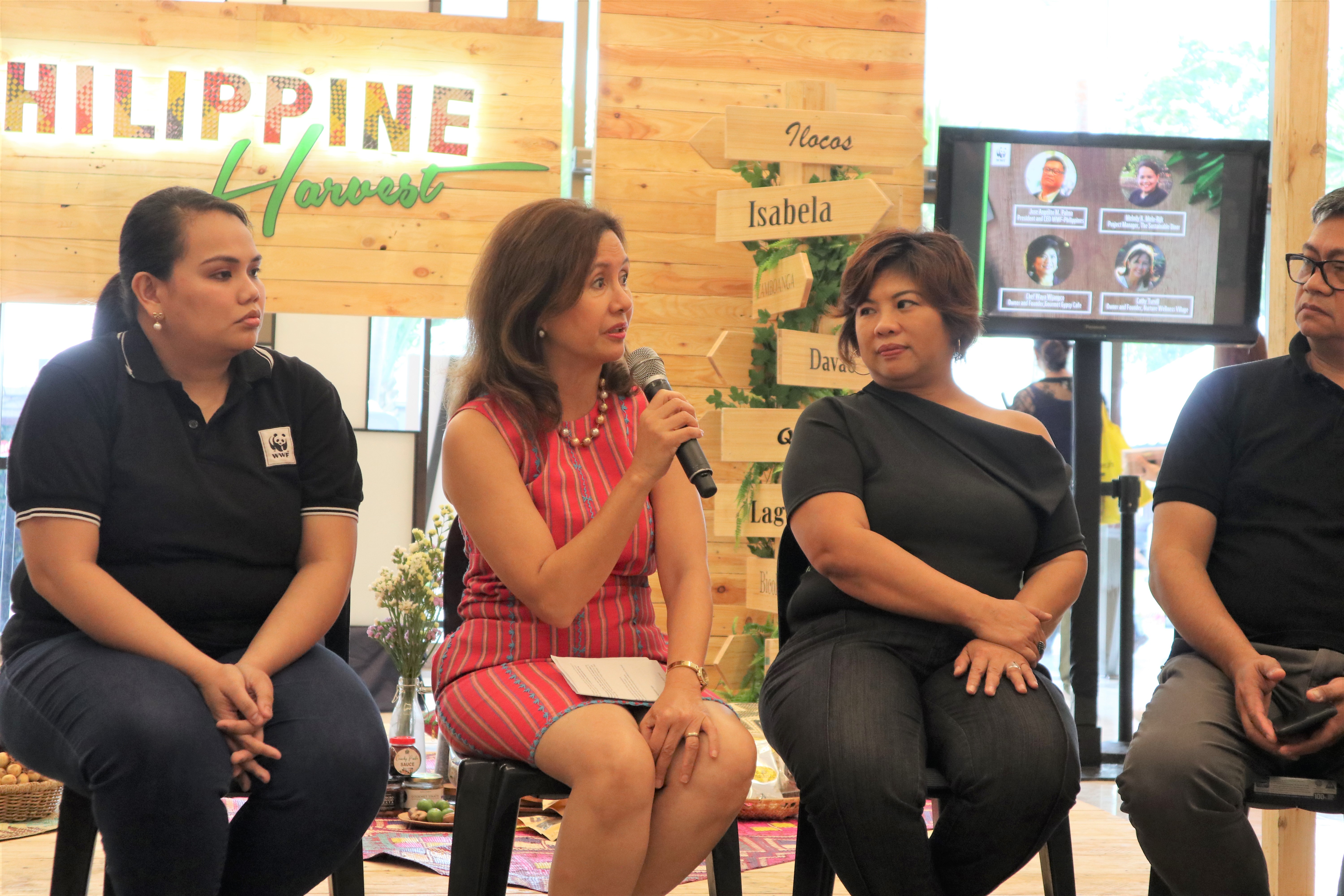
Cathy Turvill, Owner and Founder of Nurture Wellness Village, talks about the importance of early environmental education and how sustainability practices aren't exactly expensive. © Gabriel Villalon / WWF-Philippines
Melo-Rijk closed the panel with a strong message to the three major stakeholders of The Sustainable Diner project: the government, the food service sector, and of course, Filipino diners. “The Sustainable Diner is all about making sure that the actors who can bring about change are being tapped for this project. We are highlighting the government’s role for change, for the business operators, and also for the consumers to be mindful of how they consume and what they consume, and this project also aims to provide scientific evidences for us to provide interventions,” stressed Melo-Rijk. “WWF is a science-based organization. We want to make sure that our interventions are based from real-life situations, statistical data, feasibility studies, and analysis. I think that this is a great contribution in addressing sustainability in the tourism industry. We have to make sure that we can provide solid interventions to find solutions for the problems that we are experiencing now in food and travel.”
The Sustainable Diner project, under WWF-Philippines’ Sustainable Consumption and Production, is part of the International Climate Initiative (IKI). The Federal Ministry for the Environment, Nature Conservation, and Nuclear Safety (BMU) supports this initiative on the basis of a decision adopted by the German Bundestag.
